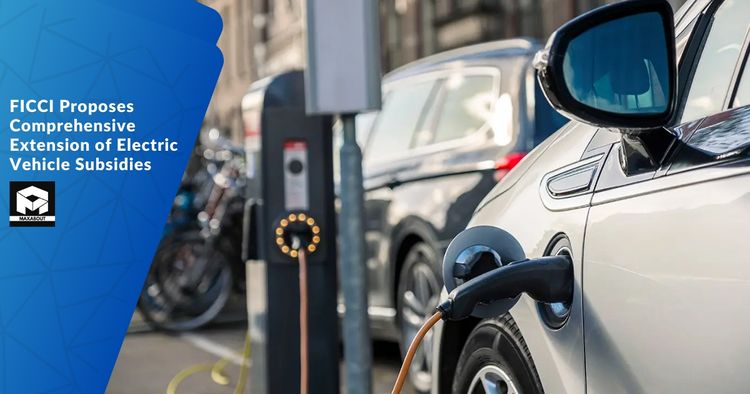Introduction
The Federation of Indian Chambers of Commerce and Industry (FICCI) has presented an in-depth proposal urging the Ministry of Heavy Industries (MHI) to extend the Faster Adoption and Manufacturing of Hybrid and Electric Vehicles (FAME) subsidy for electric vehicles (EVs) until 2029. Due to the FAME-II subsidy's impending expiration in April 2024 and the conspicuous lack of official announcements regarding a replacement or extension, FICCI highlights the need for strategic continuity in the government's support for the EV sector and the potentially far-reaching effects of abruptly ending these vital incentives.
Concerns about Price Increase
FICCI delves into profound concerns over the conceivable surge in EV prices, estimating a substantial 25 to 30 percent increase effective April 1, 2024. The government's ambitious aim of transitioning 30 percent of the whole transportation ecosystem to electric vehicles by 2030 faces significant challenges due to the predicted increase in costs, particularly considering the present low penetration rate of 5 percent for EVs. The organization explains the potential negative effects on consumer interest and the achievement of decarbonization targets if the subsidy is not continued, highlighting the delicate balance between affordability and sustainability.
FICCI's Proposal
In its meticulously crafted proposal, FICCI advocates for a judicious and forward-looking approach by suggesting a prudent five-year extension of the FAME subsidy, coupled with a thorough three-year review period. The trade association highlights how important it is to keep up demand incentives to avoid a significant spike in EV prices, which could impede future attempts to promote more environmentally friendly modes of transportation. The FICCI proposal goes beyond a straightforward extension; it emphasises the importance of a dynamic and adaptable regulatory structure that can respond to shifting market conditions and advancements in electric car technology.
Current FAME Scheme Overview
Delving into the details of the existing FAME scheme, initiated in 2015 and subsequently expanded with FAME-II in 2019, FICCI sheds light on the substantial budgetary outlay of Rs 10,000 crore. Currently, the subsidy for registered electric two-wheelers stands at a noteworthy Rs 10,000 per kilowatt-hour, capped at 15 percent of the ex-factory price. The primary objective remains steadfast – fostering the adoption of one million electric two-wheelers. FICCI not only provides a historical overview but underscores the ongoing impact of the FAME scheme in providing crucial financial support and incentives for the growth of the electric vehicle industry in India.
Impact on EV Adoption and Green Technologies
FICCI articulates the critical importance of perpetuating demand incentives to effectively bridge the discernible price gap between internal combustion engine (ICE) and EV vehicles. Furthermore, the proposal fervently advocates for an expanded ambit of the extended FAME scheme, incorporating emerging green technologies such as hydrogen and fuel cells. This envisioned expansion seeks to encompass not only the existing segments but also extend its purview to include medium to heavy trucks and private transportation facilitated through e-buses. FICCI emphasizes the need for forward-looking policies that anticipate the trajectory of technological advancements, ensuring that the subsidy framework aligns with the evolving landscape of sustainable transportation.
As it wraps up its all-encompassing plan, FICCI predicts a seismic shift in the electric vehicle market, with over 30 million EVs potentially adopted throughout the five-year extension term across a variety of industry categories. According to FICCI, taking such a calculated risk is crucial to achieve the lofty goal of 30 percent electrification of India's vast transportation industry. To facilitate a seamless transition to affordable EVs, the proposal puts forth the recommendation of persisting with the government's Phased Manufacturing Program (PMP) incentive calculation and localization norms, seamlessly extending them under the umbrella of the existing FAME-II quality parameters. The group reiterates that cooperation and continued support from the government and industry stakeholders are necessary to ensure the long-term sustainability of the electric vehicle sector in India. The final words made by FICCI emphasise how crucial it is to be flexible and proactive when creating policies in order to encourage the nation's wide-scale and sustainable adoption of electric vehicles.

